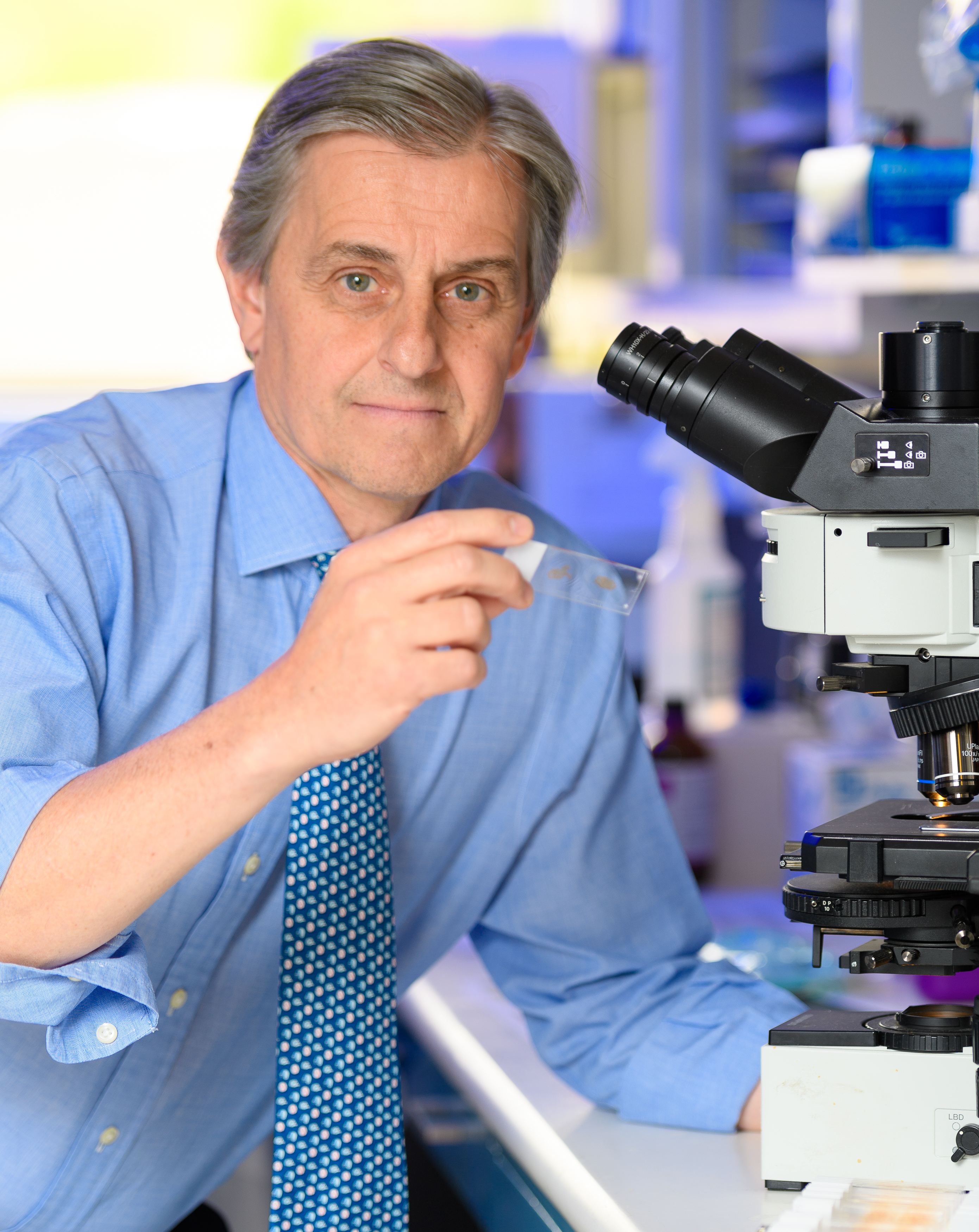Remdesivir and Sarilumab – COVID-19 Clinical Trials Begin

Complete the form below to unlock access to ALL audio articles.
Technology Networks recently had the pleasure of speaking with Kevin Tracey, CEO and President of the Feinstein Institutes for Medical Research.
The Feinstein Institutes is collaborating with Gilead Sciences and Regeneron Pharmaceuticals in an effort to identify effective therapeutic treatments against COVID-19. As part of the collaboration, three clinical trials are being offered to patients that have already been admitted to Northwell Health hospitals with moderate to severe COVID-19.
The trials will explore the safety and efficacy of the human antibody, sarilumab, and the investigational antiviral drug, remdesivir (RDV). Here, Tracey discusses the clinical trials and elaborates on the importance of academic–industry collaboration in the fight against COVID-19.
Molly Campbell (MC): Please can you tell us about the clinical trials analyzing the safety and efficacy of sarilumab? What preclinical evidence suggests it's potential in treating the complications seen in some COVID-19 patients?
Kevin Tracey (KT): Sarilumab is a human antibody that may stunt the production of a cytokine called interleukin-6 (IL-6), which has been observed in cases of pneumonia in some COVID-19 patients. Cytokines are small proteins that are released in cell signaling and mediate immunity, inflation, and other cell responses. If the cytokines are out of control, that’s when complications, like pneumonia, may develop.
There has been previous data from China that shows the efficacy of IL-6, however, that was obtained through a non-controlled trial. The Feinstein Institutes for Medical Research is conducting the first controlled trial of approximately 400 severe or critical patients being hospitalized.
MC: The Feinstein Institutes for Medical Research is teaming up with Gilead Sciences, Regeneron Pharmaceuticals and Sanofi. How important is academic–industry collaboration in the fight against COVID-19?
KT: Collaboration is critical to put a stop to COVID-19. It is reassuring to see industry, governments, and researchers from across the globe join forces to try to stop the spread of COVID-19. Working together to find solutions to prevent this from happening again – whether that be in the form of treatment for those sick right now, or a vaccine for the future.
Take, for example, how we were able to get our clinical trials up and running in just four days. Our team at the Feinstein Institutes connected with Gilead and Regeneron on a Friday, over the weekend we hammered out the details, and by Tuesday we were enrolling. The global efforts, across industries, demonstrate the human spirit and ingenuity that can eradicate disease.
MC: What efforts are being undertaken to accelerate the development and testing of therapeutics against COVID-19 in this critical time?
KT: While we understand the need for COVID-19 treatments, we also need to keep in mind the safety of our patients, first and foremost. We have worked around the clock to get these trials up and running and continue to do so as we administer treatment in the intensive care units. While some people are calling for fast-track drug approvals, I can tell you, that is not how effective scientific research is done. We are following the protocols of these trials to properly ensure patient safety while doing everything we can to process and share our data as quickly as possible.
Laura Lansdowne (LL): Could you elaborate on the design of the two trials looking at the safety and efficacy of RDV? What are the primary endpoints of each study?
KT: We are conducting two trials with RDV. The first is for severe patients who are hospitalized. It is a randomized trial, which means the patients and the research investigators do not know if the patient received RDV or a placebo drug, delivered intravenously. The endpoint of the study will look at the progression, or regression, of COVID-19. The second RDV trial is for approximately 600 patients with moderate COVID-19 and will look at the effectiveness of two durations of RDV treatment as compared to standard of care – which is breathing assistance, fluids etc. Researchers will compare patient discharge times from the hospital.
LL: Could you tell us about RDV’s effects on other viral pathogens and how can this knowledge be translated to SARS-CoV-2?
KT: Unlike the Regeneron trial with sarilumab, an antibody trial that looks to prevent the effects of COVID-19 in patients, the Gilead trial of RDV is an antiviral drug that hopefully would reduce the virus itself within patients. RDV would target the virus, cutting down on its viral “load”, limiting the intensity and duration of the virus in patients. RDV has shown positive results in vitro and animal models for other viruses, like Middle East respiratory syndrome (MERS) and severe acute respiratory syndrome (SARS), both viral respiratory illnesses are caused by coronaviruses.
Kevin Tracey was speaking to Molly Campbell and Laura Elizabeth Lansdowne, Science Writers for Technology Networks.




